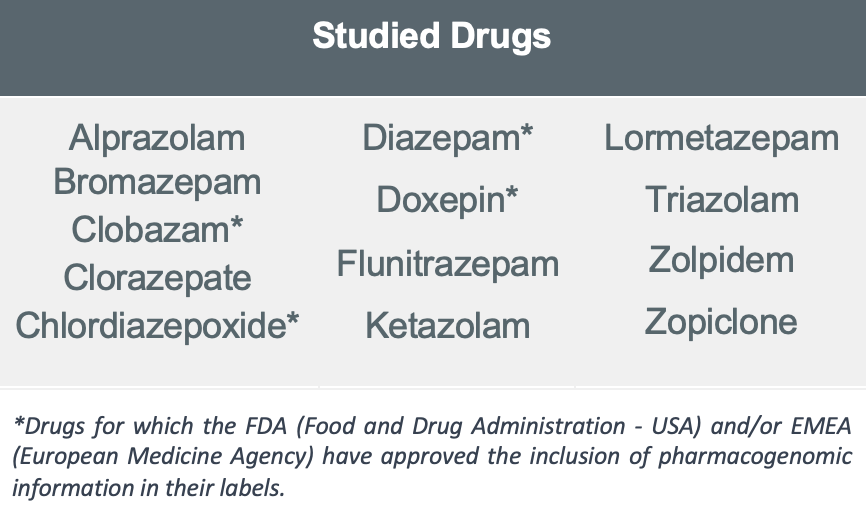FG Neuro Anxiety
Pharmacogenetics of Anxiety Disorder
Why undergoing this examination?
Anxiety is an emotional response that occurs in response to stimuli that disrupt physiological and psychological balance, acting as a defense system of the body. In this type of situation, anxiety is considered a natural and positive reaction. In modern society, this innate emotional response has developed pathologically, giving rise to symptoms that constitute the so-called anxiety disorders, which can develop in a chronic course, with periods of exacerbation in the face of stress or illness. The lack of effect of pharmacological treatment for anxiety and insomnia can be largely due to the different genetic profiles of individuals, as human genome variation is one of the most important factors modulating the individual response to medications. In light of this, considering the dependence problems that these types of medications can cause, as well as the generation of undesirable side effects.
What is this exam?
The FG Neuro Anxiety pharmacogenetic panel evaluates variants in genes responsible for the expression of the main enzymes involved in the metabolism of anxiolytic and hypnotic drugs. The analysis provides relevant information on the 13 most used drugs, based on the study of 22 genetic variants described in the scientific literature, present in the genes of the cytochrome P450 family: CYP2C9, CYP2C19, CYP2D6, CYP3A4, CYP3A5, and CYP1A2.
For whom is it indicated?
- Patients with anxiolytic or hypnotic disorders who want to personalize treatment based on their genetic profile;
- Patients undergoing pharmacological treatment that does not yield expected results.
Technology
Next-generation sequencing (NGS).
FG Neuro Anxiety
Pharmacogenetics of Anxiety Disorder
Anxiety is an emotional response that occurs in response to stimuli that disrupt physiological and psychological balance, acting as a defense system of the body. In this type of situation, anxiety is considered a natural and positive reaction. In modern society, this innate emotional response has developed pathologically, giving rise to symptoms that constitute the so-called anxiety disorders, which can develop in a chronic course, with periods of exacerbation in the face of stress or illness. The lack of effect of pharmacological treatment for anxiety and insomnia can be largely due to the different genetic profiles of individuals, as human genome variation is one of the most important factors modulating the individual response to medications. In light of this, considering the dependence problems that these types of medications can cause, as well as the generation of undesirable side effects.
The FG Neuro Anxiety pharmacogenetic panel evaluates variants in genes responsible for the expression of the main enzymes involved in the metabolism of anxiolytic and hypnotic drugs. The analysis provides relevant information on the 13 most used drugs, based on the study of 22 genetic variants described in the scientific literature, present in the genes of the cytochrome P450 family: CYP2C9, CYP2C19, CYP2D6, CYP3A4, CYP3A5, and CYP1A2.
- Patients with anxiolytic or hypnotic disorders who want to personalize treatment based on their genetic profile;
- Patients undergoing pharmacological treatment that does not yield expected results.
Next-generation sequencing (NGS).
Advantages
SYNLAB GROUP
Guaranteed by the experience of the absolute European leader in laboratory diagnostics.
COMPLETE
Detailed report, where the results will allow the suggestion of individualized conduct, assisting in the prognosis to provide greater efficacy in treatment and a significant reduction in adverse reactions.
Extra Information
DOCUMENTATION – Available on the SYNLAB Direct for clients
- Informed Consent;
- Clinical Questionnaire;
- Medical Request.
PREPARATION
- Fasting is not necessary for the test.
Additional Information


Delivery Time
22 business days

Sample Type
5mL of total blood in EDTA

















